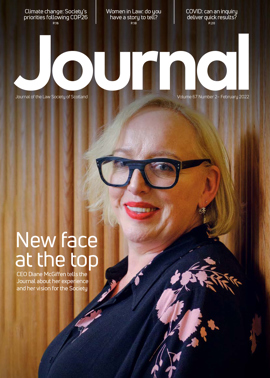Lawyering naked and alone

COVID, for its obvious and grossly negative consequences, has sped up the ongoing revolution in legal affairs, causing its speed to multiply as the adoption of new legal tech becomes more profound and widespread across the sector. This paradigm shift will have a profound effect both on how legal work is done and what it means to be a lawyer, in both structural and existential senses.
Interestingly though, COVID has given a microcosmic window of what a potential future of the coming decades may look like. This future may be one of profound psychological changes in the life of a lawyer, as COVID suburbanised and isolated the legal profession from itself, deconstructing traditional legal culture. This essay will explore what changes occurred to the legal profession during the pandemic, and what its future may be if it continues down this path.
Remote work: freedom or oppression?
Robert Putnam, in his book Bowling Alone: The Collapse and Revival of American Community (2000), wrote that at the start of the millennium American civil society was in engulfed in a crisis of aloneness. Where there had once been a healthy civil society that brought people together through activities such as bowling clubs, unions, the Boy Scouts, and churches, society had begun to fragment. This aloneness led to political disengagement, alienation from one’s neighbours, and a generalised decrease of trust within society. He argues that this was, in part, driven by the suburbanisation and individualisation of the American experience, brought by the mass movement of people into the suburbs in the 1950s: leisure activities became “personalised”, no longer requiring socialisation.
The most lasting effect of COVID will be that remote work will become a viable option for the totality of a person’s work experience. The political economy of large firms is such that they will remain permissive of, encourage, or switch fully to a remote work model. This, on some level, is good: a permissive structure towards remote work is clearly important for those with disabilities or parents with younger children, providing them the option to engage in remote work. Further, it has proven to be liberative, allowing some to work several jobs simultaneously, and has had the effect of freeing the profession from its traditional metropolitan core to allow for more permissive and personalised work experience.
However, this freedom is paradoxical. In its totality remote work is oppressive. It is an invasion of the sacrosanct. It is the smashing of the already weakened lawyer’s work-life dynamic and the reconstruction of them as one. It is much harder to walk away and call it a day when there is no threshold to pass through. The deconstruction of this started with email, which brought the office into the home, and has now insidiously morphed. The adoption of keystroke loggers, monitoring software, and other surveillance tools on company computers now brings the spectre of workplace surveillance into the home, at levels possibly beyond those which exist within an office. The ever-present necessity to meet and surpass billable hours becomes entwined with and consumes daily life. When the work becomes ever present, so too does the pressure to complete it.
Remote work also suburbanises the work experience. The traditionally collaborative process of legal work that demands the interaction and collaboration of trainees, paralegals, advocates, and partners throughout a firm, is now experienced in an individualised, atomised setting. Remote work, therefore, is a simulacrum of real work. Co-workers are reduced to faces or, if unlucky, a black screen on a computer. The firm is dematerialised into databases, emails, an app running in the background while you work, and reminders on a schedule. The clients transform into an amorphous nebula of workflow tasks. The physicality of the legal experience is deconstructed, and interpersonal bonds are severed.
This then alienates the lawyer, in both the literal and Marxian understandings, removing the emotional, tactile and human touches. The collective experience of exuberating completion is stripped away. The pats on the back, the shaking of hands, the exhausted sighs, and end of week celebrations are gone. The lawyer becomes a nihilistic suburbanised cog in a distant ethereal machine. The lawyer is now Lawyering Alone.
Effect on performance
The suburbanisation of the legal profession also leads to deconstruction of the lawyer effect and limits a lawyer’s capacity for performance. The sociologist Erving Goffman argues that many modern professionals, when in practice, construct a “personal front” to project and express their own competence, authority, and expertise. This he, and others, compare to a performance where things like uniforms, learned knowledge, and jargon are central in the construction of the personal front: E Goffman, C C Lemert and A Branaman, The Goffman Reader (1997), 98-100. Therefore, the practice of lawyering requires both technical knowledge and the performance. Peter Lyons, in his Advocacy: A Practical Guide (2019), is explicit about this, stating that an effective “performance of competence” is just as important as technical competence.
However, COVID has had a significant impact upon the performance of lawyering. The construction of an apparatus for virtual legal work was necessary during the pandemic as in-person interaction was forbidden, but much was lost. The performance became less than what was there prior. Gone was the office, replaced by a kitchen or bedroom. Gone was the flair for the dramatic, as the ability for the traditional theatrics of the courtroom/boardroom became replaced with awkward, stilted Zoom calls, tyrannised by the questions “How close should I be to the camera?”, and “What do I do with my hands?”
The Zoom call also distorts the performance of a caretaker, a lawyer’s ability to read a client’s emotions, as they no longer can see body language and thus may fail to comfort a client in need or understand when they are reaching a sensitive topic. Therefore, technology distorts the lawyer’s presentations of competence into something less; the lawyer is naked.
The question becomes, what happens when the proverbial emperor has no clothes? Can Atticus Finch stop the lynching of a young black youth without the high drama of the courtroom? What happens to the Suits-esque “power lawyer”, whose effect relies upon bespoke suits, a glitzy office in the City, and who takes their clients to the best restaurants to discuss negotiations, when they are reduced to working in a plain button-down shirt, in their kitchen with their children running around them, trying to fix difficulties on a Zoom call with a client. Or worse, what happens to one’s ability to engage in impression management when they unintentionally turn into a cat? (D Victor, “‘I’m not a Cat,’ Says Lawyer Having Zoom Difficulties” (2021) New York Times)
A tool to be used properly
In a practical sense, Eric Grossman, chief legal officer of Morgan Stanley, stated frankly in a letter to outside law firms that legal performance has gone down, with work becoming shoddier, stating that he has a “grave concern that our profession cannot longer endure a remote work model” and noting specifically that the firm’s work output has become more fragmented and disjointed, a product of a group of individuals and not of a team (D C Weiss, (2021) ABA Journal).
At the same time, new trainees have stated they are isolated, struggling to find purpose and a sense of oneness with a foreign-feeling firm. They lament the loss of education via osmosis, as they are no longer being exposed to the legal world in its fullest capacity. And they are struggling to determine when to log off, as the delineation between when work ends and life starts is a matter of feet, and the pressure to perform is Damoclean (L Barr and R Simmons, “A broken cycle: How coronavirus is affecting the qualification of lawyers” (2020) The Lawyer, available at bit.ly/3s2s8p9).
What, then, shall become of the legal profession? My whiggish sensibilities and techno-optimism lead me to believe that the future will likely bring about a new paradigm to accommodate the change in affairs. I am confident that remote hearings will become a common occurrence, at least for procedural matters, and that a new norm of conduct during such environments will become widely accepted, leading to a recalibration of standards in the performance, and expectations of those watching the performance. Further, I am confident that remote work will remain as a valuable tool-in-the-kit for those that need it due to personal circumstances such as disability or childcare.
This said, it is a tool, and it is imperative that firms and those at the top of the legal hierarchy respect it and do not use it as a tool to further deconstruct the work-life balance, thus making the doing of legal work an all-encompassing task. Further alienation and isolation are possible outcomes from legal technology that are often underdiscussed effects of technology; therefore, it is now necessary that firms seek to reconnect their staffs and construct future cultures of inclusion and oneness.
Regulars
Perspectives
Features
Briefings
- Human rights: Gendered passports survive challenge
- Pensions: Are employers ready for the challenge?
- Succession: Putting it right: scope of the s 3 remedy
- Property: When the debtor defaults
- In-house: Starting an in-house career, in the house!
- Criminal court: New year, familiar issues
- Employment: Is a "right to disconnect" on the horizon?
- Family: Parens patriae: a cross-border issue







